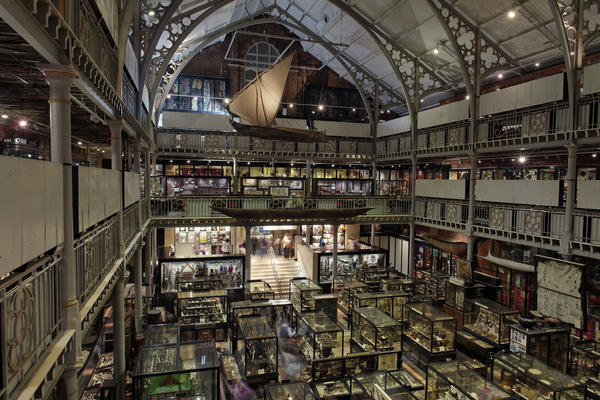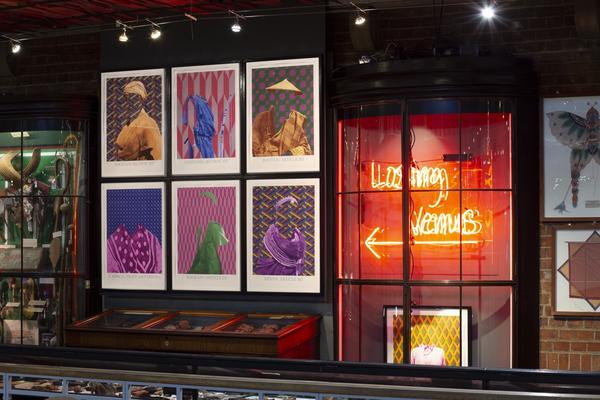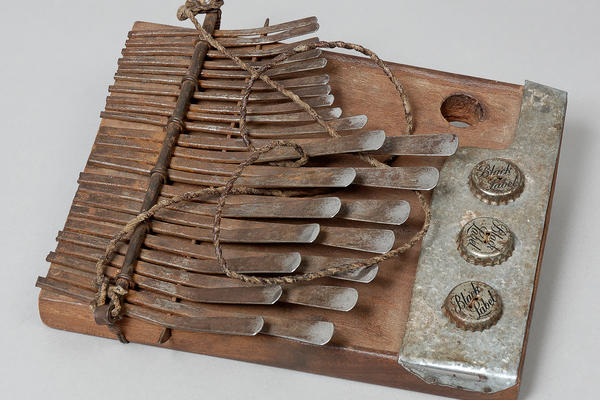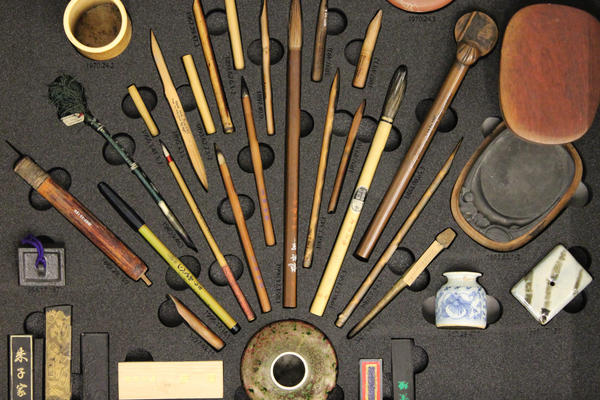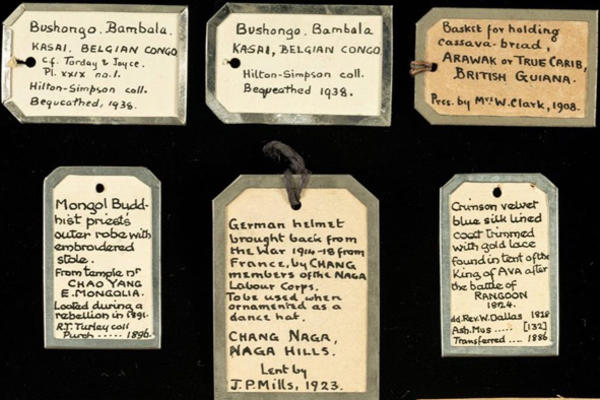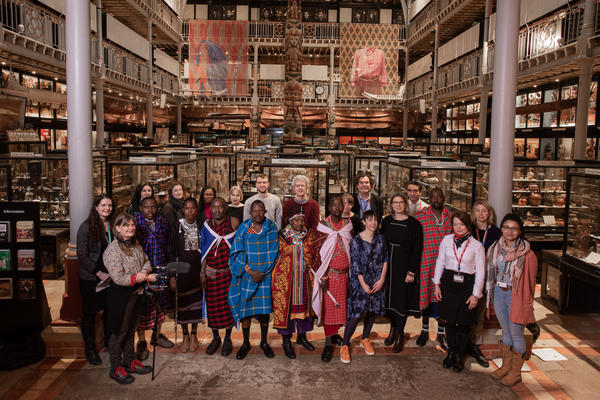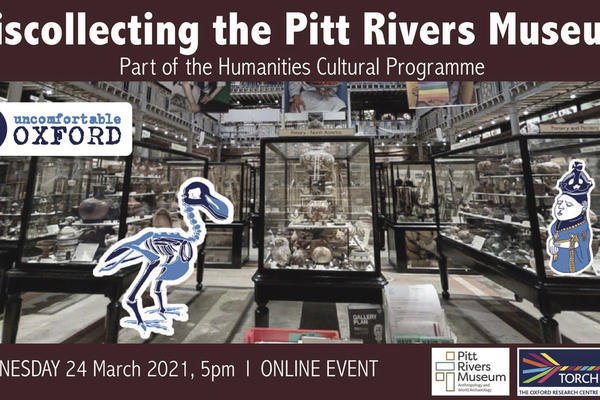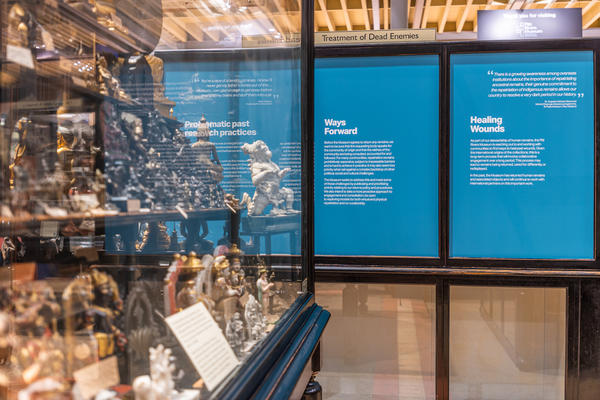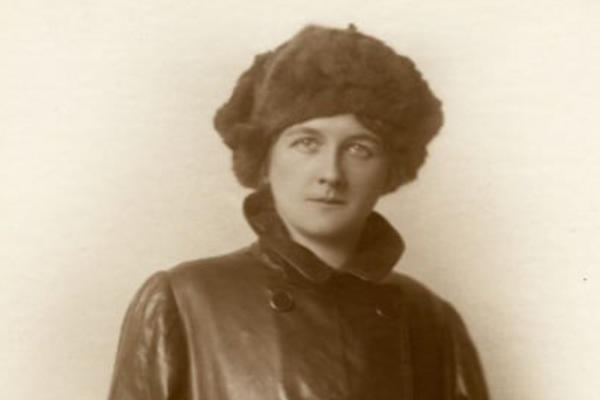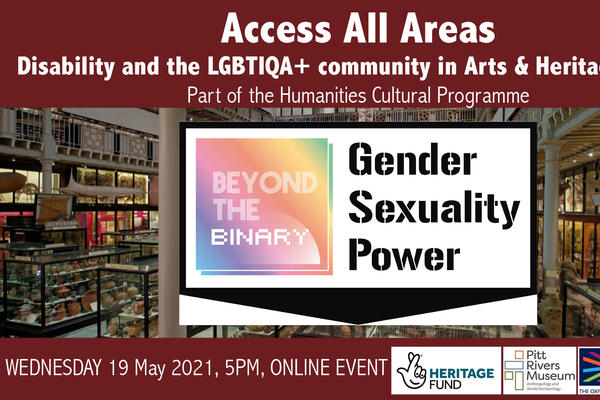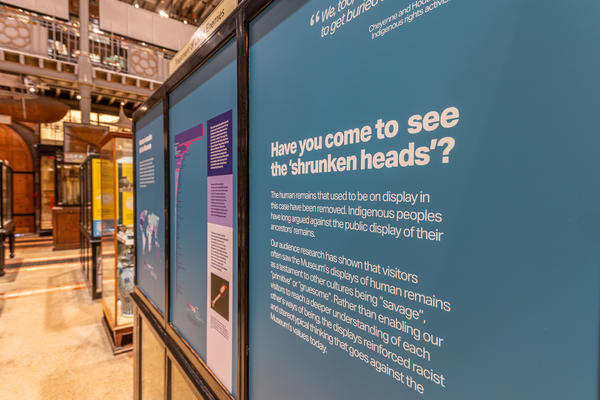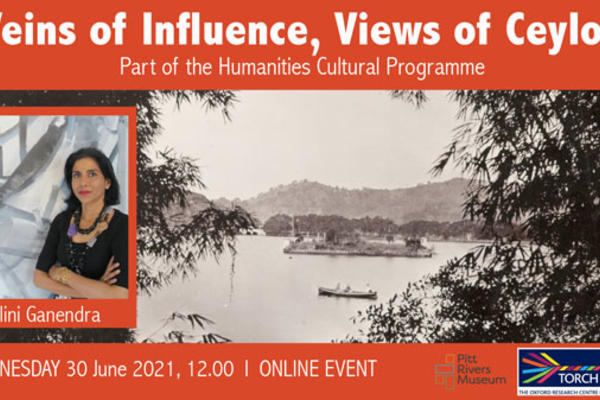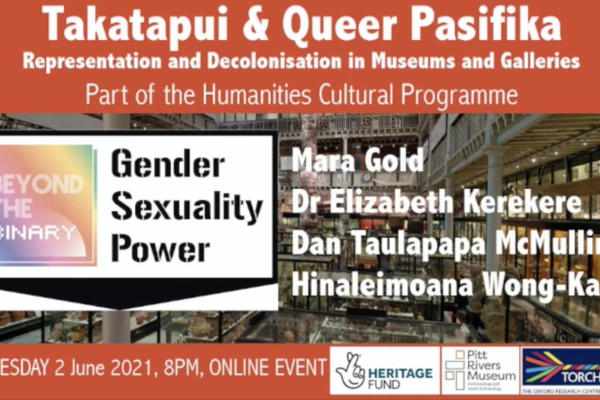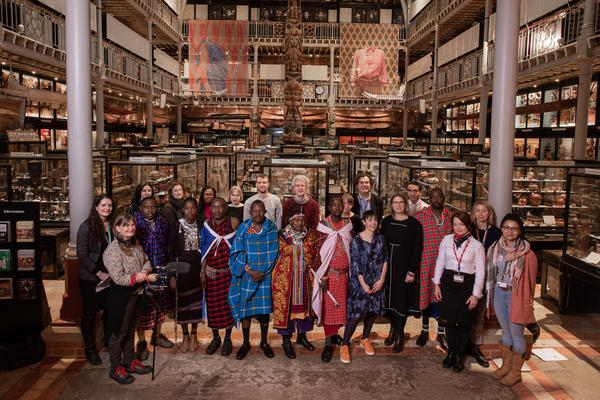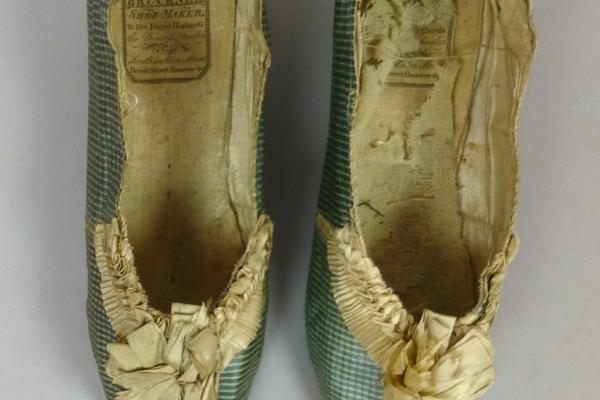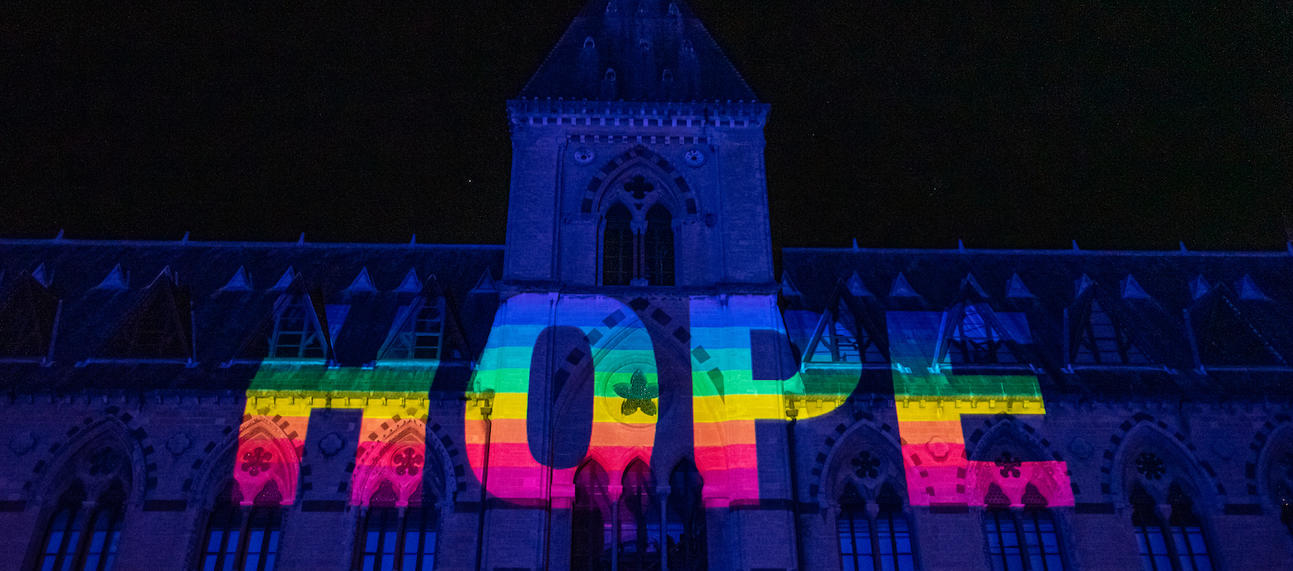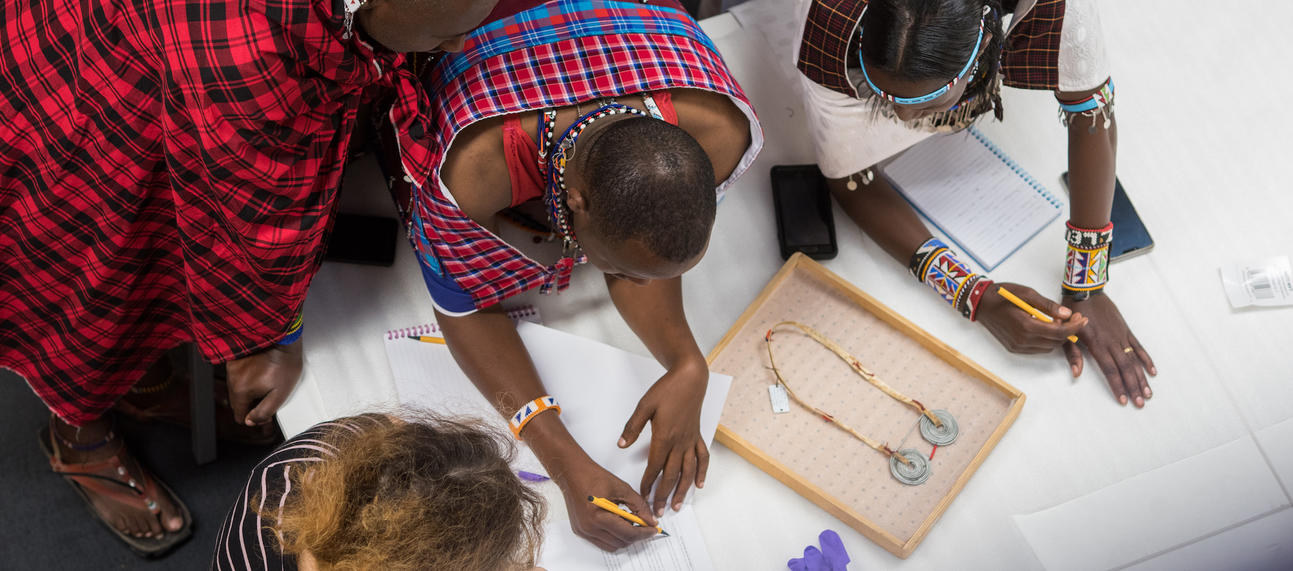Radical Hope
At the Pitt Rivers Museum we want to use the philosophical and psychological concept of Radical Hope to reimagine what the future might be for museums like ours that have deep roots in coloniality. Radical Hope is an idea that helps us to imagine the future after a moment of upheaval and change. The term was first developed by philosophers looking at the big questions of human existence, knowledge, reason and the mind. They wanted to better understand how people can recover after a traumatic experience, such as the loss of their culture. Philosopher Jonathan Lear illustrates this idea with the experience of Chief Plenty Coup. With the 19th Century destruction of the buffalo herds, Chief Plenty Coup's Crow Nation were faced with the end of their traditional way of life and had to reimagine their culture.
The collections we steward were collected during the height of the British Empire, when collectors felt entitled to bring hundreds of thousands of objects together and curators felt authorised to display and explain them to visitors, assuming that they were best suited to tell stories about those objects because they had studied them. We were once proud to be labelled 'universal' or 'encyclopaedic', because the Museum was supposedly bringing all cultures of the world under one roof for the purpose of learning and research. Today, we now think differently about what the purpose of our museum needs to be.
Radical Hope events will reimagine museum practice. They will focus on how Western museums have relied on colonial ideas that have erased the many ways of knowing and being of people from around the world in favour of promoting one viewpoint. The series will consider how museums can change to support humanity, our relationships to each other, to the environment and to things. Led by researchers and global indigenous community partners from around the world who are involved in unpicking colonial practices, the Radical Hope series will include topics such as the display of human remains, returns, equitable interpretation of cultures, inclusive curriculum and representation.
The reimagined museum will be a place that supports all people to share their ways of knowing, being, understanding and making - a place of many stories told by a multitude of voices.
Radical Hope is directed toward a future goodness and it anticipates a good for which those who have the hope but as yet lack the appropriate concepts with which to understand it. (Philosopher Jonathan Lear in his book Radical Hope, Ethics in the Face of Cultural Devastation)
In recent times we have all had to deal with a lot of change - a global pandemic & the resulting economic crisis, the forefronting of racial injustice and a crisis of pollution and the loss of biodiversity, making us acutely aware of the precariousness of our existence on this planet. We all grapple with these matters in our own way. In Radical Hope, Beyond the Museum we hope to provide a forum to discuss the issues that affect us all, including conversations on colonial complicity, anti-racism and sovereignty. This series of regular online discussions, film showings and Q&As will build on existing partnerships and be shaped in collaboration with local and global communities, research visitors, indigenous peoples and originating communities.
Teach your children not to be invaders of our lands; we are human just like you. (Chief Valdemar Ka'apor's plea to the audience in front of the Museo Goeldi, Belem do Para, Brazil)
Webinar Discussions
Radical Hope and Critical Change to Displays at the Pitt Rivers Museum
Where is the love?
Looking Beyond: Music, Memory and the Mbira
What's in the Drawers?
Let's Talk Labels Pt.1: A Conversation around the Pitt Rivers Museum's Labelling Matters Project
Let's Talk Labels Pt.2: A Conversation around the Pitt Rivers Museum's Labelling Matters Project
Living Cultures: Getting to Know You - Building Caring Relationships and Earning Trust
Discollecting the Pitt Rivers Museum
Repatriation as a Pathway to Redress and Reconciliation
"There Were No Women": The Pitt Rivers Museum and Britain's First Female Anthropologists
Access All Areas: Disability and the LGBTIQA+ Community in Arts & Heritage Spaces
The Emotion of Removal
Veins of Influence, Views of Ceylon: A Responsible Review of History and Relevance
Takatapui & Queer Pacifika
Living Cultures 2: Self Representation Through Film
Class within the Collection - Radical Hope
Radical Hope at the Pitt Rivers Museum
Ethnographic Museums and the Shapes of Radical Hope and Reconciliation
Related Research Projects
Find out more about research taking place in the Pitt Rivers Museum
Radical Hope Events
Hope, in this deep and powerful sense, is not the same as joy that things are going well, or willingness to invest in enterprises that are obviously headed for early success, but rather, an ability to work for something because it is good, not just because it stands a chance to succeed. (Rebecca Solnit, Hope in the Dark)
